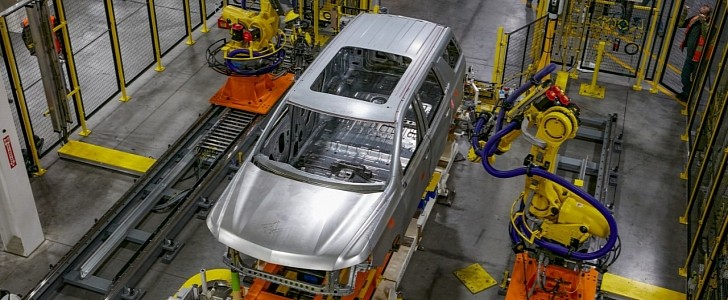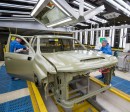The global chip shortage has caused quite a nightmare for pretty much every industry sector out there, and unsurprisingly, automakers have also been hit hard by the lack of semiconductors.
Giants like Ford, General Motors, Toyota, and so many others struggled to find a way to deal with this crisis without a major impact on their operations, but of course, such a thing was pretty much unavoidable.
And most of them turned to temporary production halts as they were waiting for chip orders to arrive and therefore allow them to manufacture their vehicles at the normal speed.
Industry experts predicted a very difficult year, and this is exactly what 2021 ended up becoming. But on the other hand, some expect 2022 to bring a slight recovery in the global chip inventory levels, with the summer to allow the world to return to a supply-demand ratio that would no longer require production adjustments, regardless of industry sector.
But this won’t happen, Intel CEO Pat Gelsinger says.
Intel is one of the companies whose chip manufacturing business is currently working at full speed, with plans to expand in the automotive market as soon as possible.
Gelsinger, however, doesn’t expect the chip crisis to come to an end in 2022. It will slightly ease off, that’s true, but on the other hand, the pre-shortage inventory levels wouldn’t be fully restored until 2023, he says.
So in other words, the global chip struggle will continue for one more year, and this is horrible news for the automotive industry, especially as new car sales have declined substantially.
Market research firm IDC, on the other hand, warns that 2023 could push the world into a completely opposite problem. Following the massive investments in production capacity, foundries could end up making more semiconductors they can sell, so in 2023, the planet might be struggling with an oversupply of chips after battling the shortage for so long.
And most of them turned to temporary production halts as they were waiting for chip orders to arrive and therefore allow them to manufacture their vehicles at the normal speed.
Industry experts predicted a very difficult year, and this is exactly what 2021 ended up becoming. But on the other hand, some expect 2022 to bring a slight recovery in the global chip inventory levels, with the summer to allow the world to return to a supply-demand ratio that would no longer require production adjustments, regardless of industry sector.
But this won’t happen, Intel CEO Pat Gelsinger says.
Intel is one of the companies whose chip manufacturing business is currently working at full speed, with plans to expand in the automotive market as soon as possible.
Gelsinger, however, doesn’t expect the chip crisis to come to an end in 2022. It will slightly ease off, that’s true, but on the other hand, the pre-shortage inventory levels wouldn’t be fully restored until 2023, he says.
So in other words, the global chip struggle will continue for one more year, and this is horrible news for the automotive industry, especially as new car sales have declined substantially.
Market research firm IDC, on the other hand, warns that 2023 could push the world into a completely opposite problem. Following the massive investments in production capacity, foundries could end up making more semiconductors they can sell, so in 2023, the planet might be struggling with an oversupply of chips after battling the shortage for so long.






